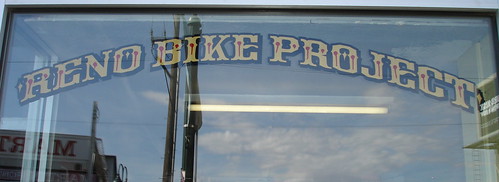Note this is a crosspost from the In Practice Blog.
David Warlick and others have jumped on Arne Duncan (who probably should be jumped on about a few things) about his statement that students should spend more time in school. David disagrees vehemently, and the points he makes are good, but I think he leaves out some important considerations involving “At Risk†students and elementary students in general.
Extra time IS a bad idea, a really bad idea, if it is just more time and intensity of what is being done now. (David’s main point)
As I’ve said over and over, the lack of experience with sports, the arts (including dance, drama and music), scouting and other outdoor education, attending camp, and the like have major detrimental effects on the overall education of students of poverty.
So if the extra time Duncan refers to is spent on these areas (and a few others) then I believe he is on the right track and I would support him.
After-school activities like sports and arts programs started to be whittled away from budgets 30 years ago (and cut almost completely from elementary school). The upshot is that parents have had to spend more money and time enrolling their kids in these programs elsewhere … guess whose kids DON’T get enrolled and aren’t driven all over town to practices and special clinics and tournaments? And think about all the wasted gas and time and extra air pollution caused by all those miles when kids could have just stayed after-school, and participated there.
Students in our primary grades are well schooled in phonics, word attack skills and other required reading skills. However when they reach upper elementary and are required to be independent readers they are so lacking in schema that reading is boring and they struggle to engage with it and fall behind again … worse they learn reading is not relevant to them.
My students go home right after school each day and because they live in an area of poverty and high crime they spend little or no time outside even playing games like tag and dodge ball … so sportsmanship and being a member of a team and an emphasis on physical fitness are not in their experience.
The kinds of “language intense†activities technology has allowed my students to participate in that are highly engaging (usually), is one huge step in the right direction. Since our schools tend to be severely segregated still by socio-economics, technology is one way to get kids exposed and collaborating with students from other experiences across the city, state, country and world.
At Risk students come to us woefully behind in language, math and learning skills the moment they hit kindergarten. We often hear the “2,000 hours†statistic … students require about 2,000 hours of quality language experience BEFORE kindergarten to be successful readers. Activities such as being read to, storytelling about family history, experiences and just … well.. stories .. and having conversations about how things work and why they are and a base vocabulary. The problem is making up that 2,000 hours AFTER a student hits kindergarten. Our current system assumes those hours are in place and so doesn’t leave any room to make them up in the regular school day, especially the way it is structured now. Spend more time on these endeavors, especially in K – 2 years and I’m for that extra time again.
If this “extra-time†in school included more time and funding for field trips and field trips that come to you … like when someone brings their collection of snakes or a science show or activity in your auditorium, and art experiences and a strong PE program starting in Kindergarten, well then I’m for it again, because for my students I don’t know where else they would or could get those experiences. The elementary schools tend to be neighborhood schools more than middle or high schools are so transportation is much less an issue.
If the extra time included regular science and social studies and art classes, since for years now I “break the rules†to teach those subjects outside of embedding them in Reading (which is OK if you are integrating, but not good if that IS your science and social studies program), I’m for it too.
Extra time in and at school? If done well … sign me up!!!
Learning is messy!
Tags: ArneDuncan, David Warlick

